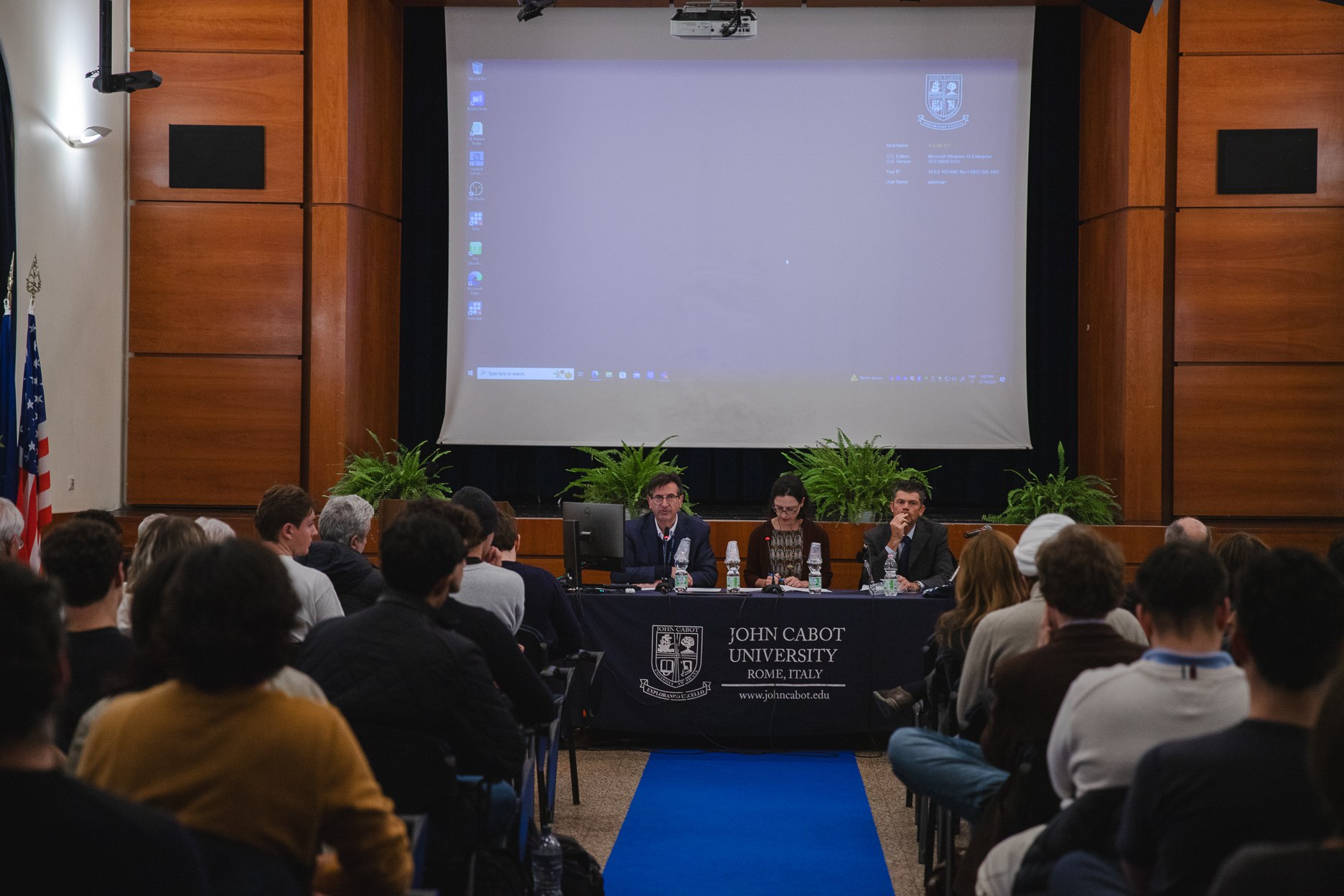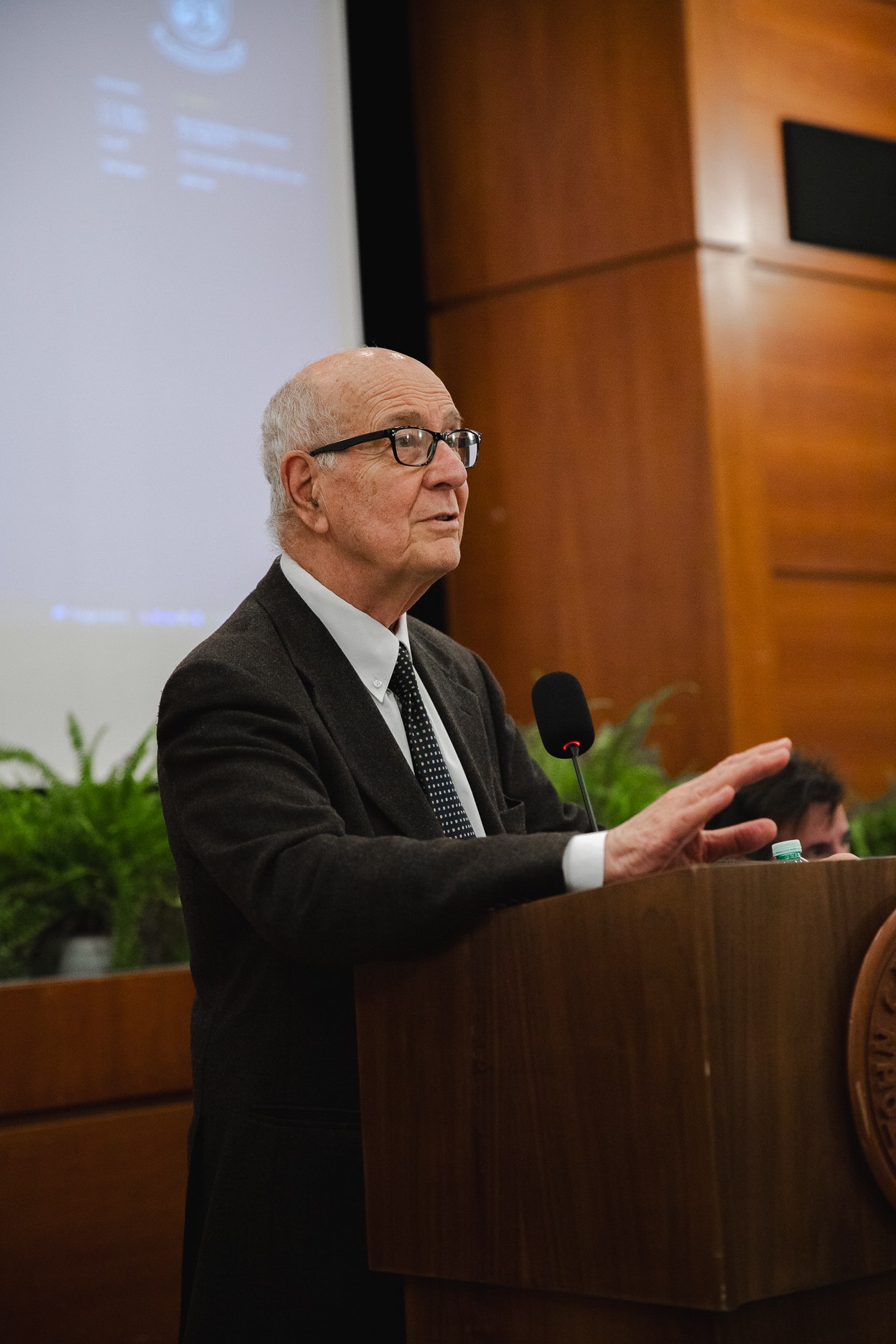JCU Hosts Presidential Lecture “The Election Effect: Insights and Implications for Tomorrow”
On November 19th, 2024, John Cabot University hosted a Presidential Lecture titled “The US Elections: Insights and Implications for Tomorrow,” organized by the Frank J. Guarini School of Business.

The guest speakers were: Dr. Jonathan Aberman (US Visiting Entrepreneur in Residence at John Cabot University, Founder of Amplifier Ventures, and Founding Dean of the College of Business, Innovation, Leadership, and Technology at Marymount University;) Pamela Harris (Professor of Law, and Associate Dean of Academic Affairs at John Cabot University;) and Dr. Roberto Menotti (Editor-in-Chief of Aspenia online, Deputy Editor of Aspenia, and Senior Advisor for International Programs at the Aspen Institute Italia).

JCU President Franco Pavoncello opened the event, pointing out that the policies that President Donald Trump intends to implement in his second presidential term are expected to have a significant impact across multiple sectors, most notably on the economy, inflation, immigration, and foreign policy.
Insights from the Panel Discussion
The panel discussion presented an overview of the dynamics that led to the US presidential election results. Ten million former Democratic voters stayed home, while a large portion voted primarily based on economic concerns, such as the cost of living. Additionally, Vice President Kamala Harris had a very short time to prepare her campaign and chose to focus on the “battleground states,” where she outperformed Joe Biden by a considerable margin.
Social networks also played an important role in the outcome. On the one hand, they were used to spread content about the candidates’ policies and campaign updates, as well as to engage voters. On the other hand, there seems to be substantial evidence that they also represented a hotspot for misinformation.
Democratic supporters are particularly concerned that the Trump Administration will bring drastic changes in the relationship between government and the population, exacerbating issues of race, religion, and women’s reproductive rights. Panelists raised legitimate questions about how the Trump Administration is filling cabinet posts and the ideological and professional qualifications of his appointees.
Finally, the panelists commented on the consequences of the US elections’ outcome for the international scenario, with two main points emerging from the discussion. First, a concern that Trump’s transactional approach will lead to renegotiating international agreements, privileging American national interests over global considerations. Second, the fear of what a possible increase in protectionism may mean for international trade. Both points raise questions about the evolution of international relations between the United States and countries like China and Mexico, and current armed conflicts.
Within this very complex and challenging framework, many questions remain open. What is sure is that everyone will monitor how Trump’s initiatives could reshape the future.





